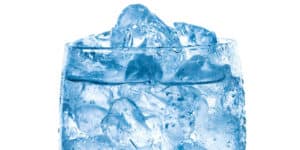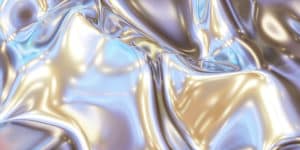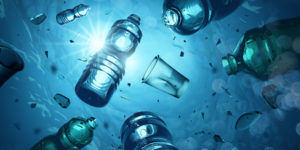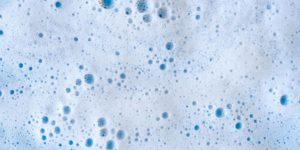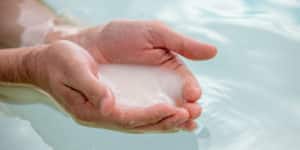A sweet taste in your drinking water can be caused by various contaminants, some of which are harmless and others which can be quite harmful.
We’ll cover every possible reason your water could taste sweet and what you need to do to make it safe to drink.
Why does my water taste sweet?
Mineral or Heavy Metal Content
Metals – Some metals such as iron, lead, or arsenic can result in sweeter tasting water. While iron is a naturally occurring element in many waters, lead is something that you should watch out for as it can cause serious health issues. To figure out the ideal solution for your situation, I would recommend getting your water tested, but if it is lead that you are worried about, you can quickly and easily use a lead test kit. It is most likely to be metals or minerals if the sweetness is discernible as a sweet aftertaste.
Minerals – Water naturally contains minerals which give each spring or source a unique flavour. There are many minerals that occur naturally, but the combination of calcium and iron at medium to high levels will produce a sweet taste. Magnesium can also be the culprit. These minerals are often found in well water and are not harmful in small quantities.
Tip: If you’re looking to explore natural water ‘flavours’ find a spring near you with our spring finder.
pH Imbalance
An acidic pH can cause a sweet taste. If your tap water naturally tastes sweet, you can test its alkalinity using test strips; however acidic tap water is often indicative of industrial pollution, so it is wise to get your water tested at a lab to ensure that it is safe for consumption.
Oral Hygiene and Residual Flavours
If other people in your household do not taste the same sweetness, it could be related to oral hygiene. This doesn’t necessarily mean poor oral hygiene; it could be many things. Sometimes what we’ve recently eaten or drank can affect what we taste afterwards.
Additionally, a glass of water that is drunk in the middle of the night may taste sweeter than one during the middle of the day because the mouth is naturally dryer in the middle of the night. A dry mouth reduces the amount of liquid causing a naturally more acidic pH and therefore a slightly more sweet taste for those with more sensitive palates.

Medicine
Some medicines alter your flavour profile and taste buds, causing any neutral taste to become sweet tasting. Typically these are ACE inhibitors such as Captopril, Enalapril, and Lisinopril; however, there may be additional medicines that can cause sweet tasting water. If you are on a new medication, consult your doctor.
Other Senses
Scent is a large part of flavour, and sometimes our brains can be tricked into perceiving a taste of sweet water when in actuality, it is just a sweeter smell. This is why some drinks, such as cucumber water and agua fresca can be so tasty with just a hint of flavouring; they rely on your sense of smell.
Diet
If you have recently changed to a low-carb diet, you may find that you develop a sweet taste in the mouth. This can have the affect of giving a neutral drink like water a sweet taste.
Bottled Water
Some bottled water, even those from natural sources, can have a subtle sweetness. As mentioned earlier, this is usually caused by calcium, iron, or magnesium; however it can also be caused by acidic water or a water with electrolytes added in.
Type of Cup/Bottle

Not all glasses are created equal and the material your glass is made of may have an effect on the ‘flavour’ of the water you’re drinking. Often it is metal cups that will impart sweetness to a beverage.
Sicknesses That Can Cause Sweet Tastes
GERD
Gastroesophageal reflux disease (GERD) is a disorder that occurs when acids and other contents from your stomach back up into the espohagus. This can affect the pH balance of your mouth and cause a sweet taste. This is often why water will taste sweet after someone has been sick.
Diabetes
High blood sugar can cause a sweet taste in your mouth (and breath) through a process called diabetic ketoacidosis.
How to Fix Sweet Tap Water
- Temperature – Water tastes ‘stronger’ at room temperatures, if your water tastes sweet and you want it to be muted, then throw some ice in that glass. The mineral content will be the same, but the flavour will be less pronounced. Note – If you have issues with lead or other contaminants it is not advisable to mask your water by cooling it.
- Run your taps before filling your cup – Minerals can accumulate in your pipes but will be naturally flushed with fresh water coming through your home. You should be doing this if you have older lead pipes in your home.
- Before doing anything drastic like purchasing a water filter, get your water quality tested at a lab. There are many naturally occurring minerals in tap water, but knowing which ones are in your water will help you select the correct solution (replacing pipes, fixing pipes, or selecting the correct filter.
- Replace older pipes – Your pipes may contain lead or accumulate rust and other mineral deposits. Replacing older pipes, especially damaged ones, can fix a ‘water tasting sweet’ problem.
- Filtration – There are many methods of filtering water, however you will want to choose the right method to ensure that your contaminants are removed.
Filtration Methods How to Remove a Sweet Taste from Water:
- Activated carbon filtration and aeration can eliminate some tastes and smells from your water.
- Air Injection Water Filter – This is a chemical free alternative that is great for removing odorous water, however if you have high iron concentrations this filter is likely to fail faster.
- Carbon Filters – If your water tastes sweet you will need to ensure that it does not contain any dangerous minerals that are not removed by your carbon filter. Most consumer-grade carbon filters will not remove:
- Arsenic
- Fluoride
- Microbes
- Nitrate
- Sodium
- Lead (Requires a special activated carbon filter)
- Reverse Osmosis System – RO can remove bacteria, viruses, and many chemical contaminants/pollutants from your water. However it will also affect the flavour. Reverse osmosis can remove:
- Arsenic
- Copper
- Fluoride
- Lead
- Nitrate
- Radium
- Phosphorus
- Sodium
- Sulphate
- Filtered Water Cooler – If your water quality is not great a filtered water cooler may be a good stopgap so that you are not left without drinking water.
There are two main reasons water tastes different when it’s left out at night. The first is that your mouth naturally becomes more acidic as it dries out overnight. This can cause a sweeter taste because acids will naturally taste sweeter. Additionally, a glass of room temperature water will have more ‘flavour’ as the minerals inside it will not be dulled by chilling. It’s the same reason that red wine is served at room temperature; the bouquet will be a lot stronger.
Groundwater will contain naturally occurring minerals such as calcium, iron, magnesium, and arsenic which tastes sweet compared to industrially produced tap water.
A sweet taste in your drinking water can be caused by a variety of different contaminants, some of which are harmless and others which can be quite harmful.
In this article, we’ll cover every possible reason your water could taste sweet and what you need to do to make it safe to drink.
Explore the taste of water with The Taste Series
- The Taste SeriesThe Taste Series – Why does my water taste ______? Water can have many different underlying tastes; some […]
- Why does Cold Water Taste Better?Ever thought about why we drink cold water or prefer ice-cold water? At one point, you may have […]
- Why does my water taste bad?If your tap water tastes bad it is likely from a contaminant. If you can narrow down what […]
- Why does my water taste bitter?A bitter taste in drinking water can be caused by the presence of metals, a high ph, or […]
- Why does my water taste funny?If your tap water starts tasting funny then it is best to get to the root cause of […]
- Why does my water taste like blood?There are a number of different reasons why your water may taste like blood. A high iron content […]
- Why does my water taste like chemicals?Usually, your tap water should taste or smell relatively neutral. However, if there is a new or existing […]
- Why does my water taste like chlorine?The smell and taste of chlorine or a bleach-like smell in tap water is usually a residual amount […]
- Why does my water taste like metal?A metallic taste in drinking water can be caused by the presence of one or a combination of […]
- Why does my water taste like plastic?Although it most commonly occurs when you let water sit in a plastic bottle for too long, plastic […]
- Why does my water taste like soap?A soapy taste can be caused by many different contaminants on the way into your glass. So in […]
- Why does my water taste salty?When you have a glass of salty-tasting water it’s automatic to assume that it just has a little […]
- Why does my water taste sour?A sour taste is most commonly caused by acidic water. Water with a lower pH level will begin […]
- Why does my water taste sweet?A sweet taste in your drinking water can be caused by various contaminants, some of which are harmless […]
- Why is my tap water smelly?Pure water is supposed to be odourless, colourless, tasteless, and neutral. However, tap water is not pure; it […]


